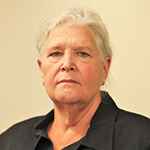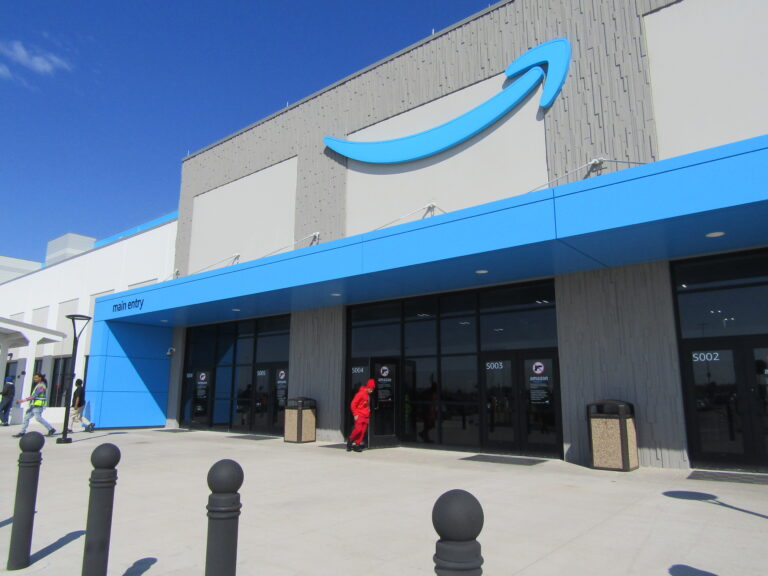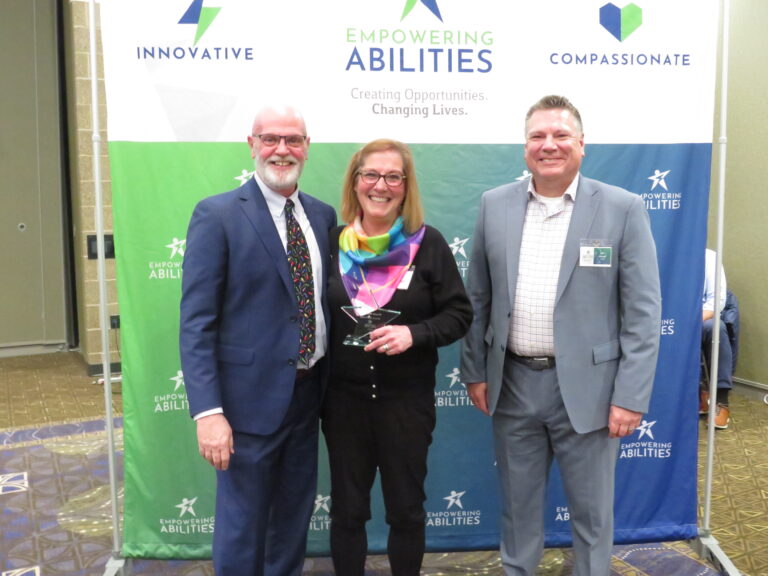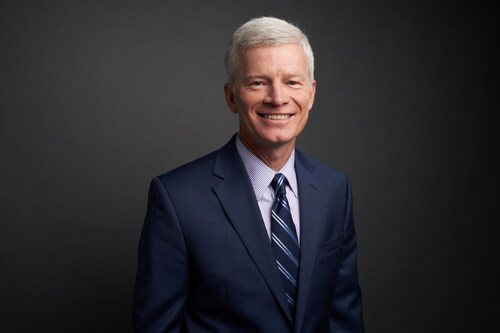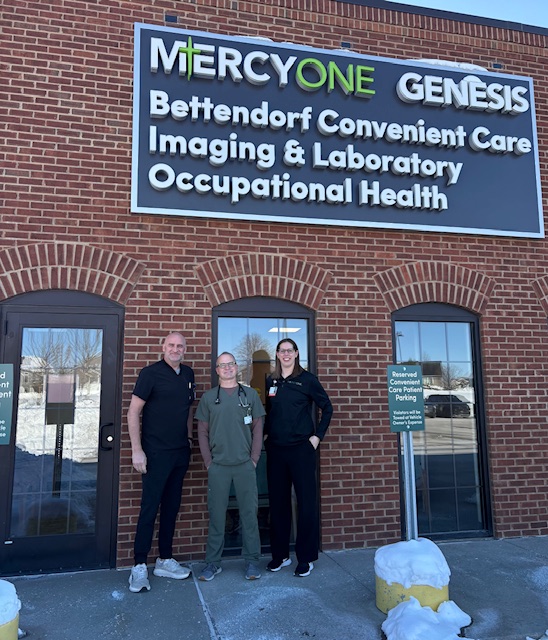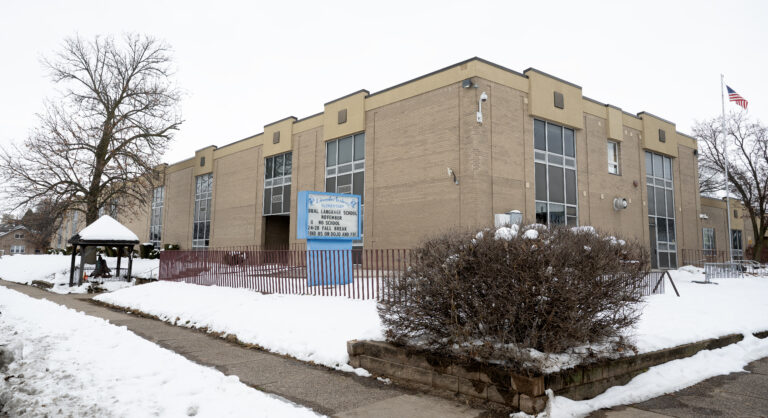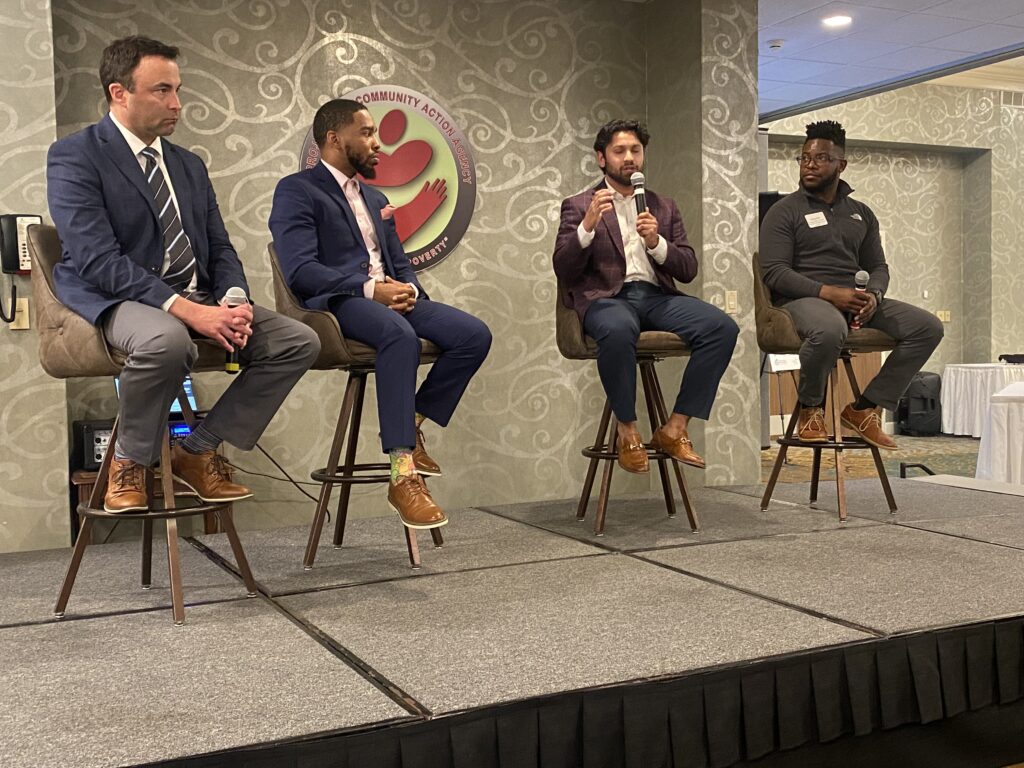
From left, Dubuque, Iowa, Mayor Brad Cavanagh, director of the Office of Shared Prosperity & Neighborhood Support Anderson Sainci, Bryan Moose, Dubuque data analyst; and Temwah Phiri, community engagement coordinator, address Project NOW’s 2023 Root out Poverty Conference. CREDIT PROJECT NOW
Quad Citians eager to learn more about Dubuque’s innovative plan to address, prevent and reduce poverty got a primer for finding their own Pathways to Prosperity from the leaders of Iowa’s oldest city on Thursday, April 27.
Dubuque Mayor Brad Cavanagh and key staff members from the Mississippi riverfront city of 60,000, located north of the Quad Cities, headlined Project NOW’s daylong 2023…

Want to Read More?
Get immediate, unlimited access to all subscriber content and much more.
Learn more in our subscriber FAQ.
Do you want to read and share this article without a paywall?
